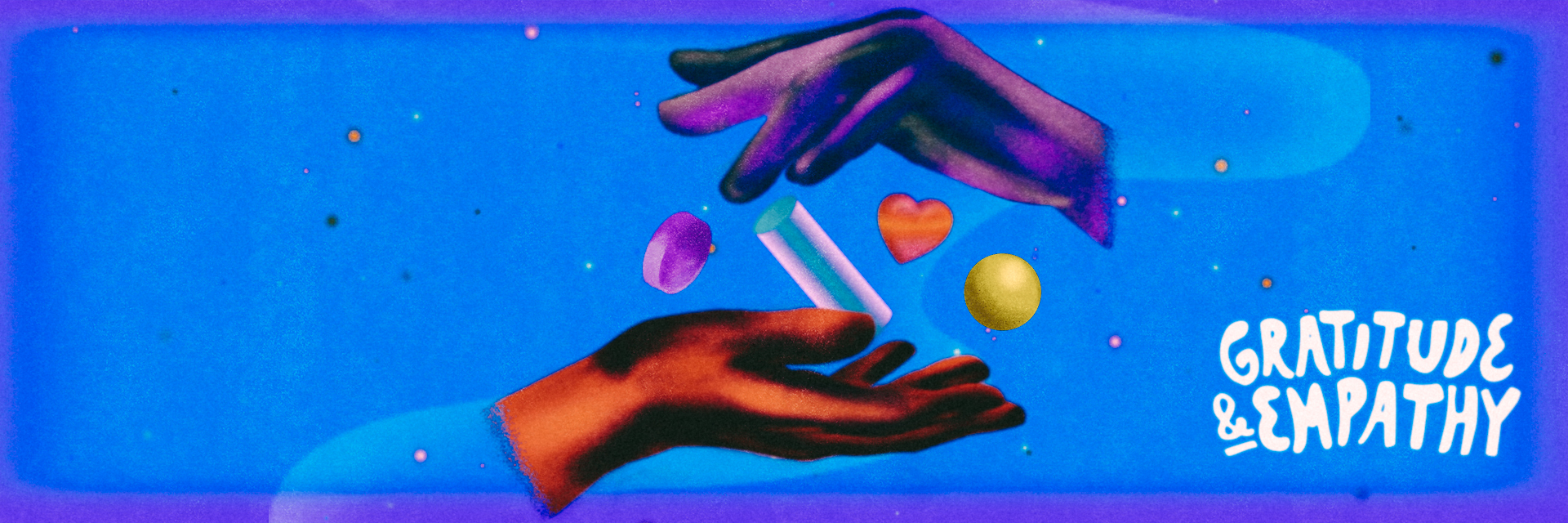
We Will Emerge: Gratitude and Empathy
We Will Emerge is a collaborative project bringing together 111 writers, activists, academics, poets, and public servants to imagine a blueprint for a post-COVID America. The pandemic and the crises that have followed have increased our understanding and appreciation of one another. This section contends with the theme of gratitude and empathy, and contributors include Sophia Bush, Hasan Minhaj, and Peter Sagal.
JUMP TO:
Elizabeth Bruenig | Sophia Bush | Brian Castleberry | Zinzi Clemmons | Ann Curry | Kelly Sue DeConnick | Meena Harris and Mónica Ramírez | Molly Jong-Fast | Sarah Lewis | Hasan Minhaj | Elie Mystal | Peter Sagal | Walter Shaub | Gary Shteyngart | Scott Simon | Connie Sun | Sabaa Tahir | Colm Tóibín
Elizabeth Bruenig
We will emerge and be grateful.
Nevermore ought a solidly stocked shelf in a grocery store feel certain, nor a clinic available for urgent care seem unremarkable. The people whose work keeps civilization intact—farm workers, truckers, grocery store clerks, nurses, home health aides, nursing home attendants—often labor without recognition, a fact their salaries darkly reflect. That these workers are utterly essential is now beyond argument, and their conditions, pay and rights should reflect this as we navigate this crisis.
We will emerge and find a better way.
Elizabeth Bruenig is an opinion writer at The New York Times, where she writes essays on faith and morality in public life. She lives in Washington, D.C. with her husband Matt and their two daughters.
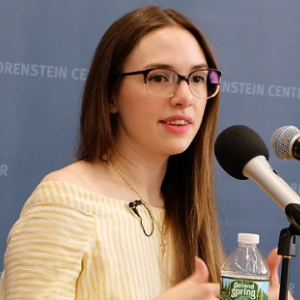
Sophia Bush
We will emerge with sharper vision and more tender hearts.
The effects of universal suffering have the potential, amidst the devastation, to make us better people. Hearts are cracking open and growing in size all around us. My hope is that we allow each of our own hearts to do so. That we drop grudges and prejudices. That we wake up to the injustice that has existed all around us for too long. The stains of racism, oppression, mass incarceration, transphobia, violence against women, crimes against the environment. The list goes on.
What if we allowed this moment to give us all real insight? What if we saw each other? What if we felt the weight of one another’s truths, and thus felt for each other? My hope is that the virus enables us to drop everything that we thought mattered and hold steadfast only to what does: each other. From that place, all of us shoulder to shoulder, we can change our broken systems. We can advocate for reform in our communities, schools, healthcare, and the planet. We can make policies grounded in human rights. We can, as the Cummings poem suggested, carry each other’s hearts in our hearts.
We will emerge and find a better way.
Sophia Bush is an American actress, activist, entrepreneur, and global education access advocate.

Brian Castleberry
We will emerge and be more honest with ourselves.
This pandemic has given us the opportunity to see the everyday heroism and humanity of medical professionals, but also—to far less fanfare—those who bag groceries, man drive-through windows, work retail, deliver food, and drive ride-shares. These workers have either lost their income or have put their lives at risk for little pay, without employer health insurance. People of color have disproportionately suffered these last months, and with time stopped, everyone has been able to witness that fact. What if we came out of this ready to talk about how class and race in America are intertwined? What if we got honest about the nature of our economy and the privilege of whiteness? What if we made it central to our recovery that those disadvantaged by this system get a real opportunity to succeed, instead of just rhetoric?
We will emerge and find a better way.
Brian Castleberry is the author of the novel Nine Shiny Objects (Custom House, 2020). His stories have appeared in Narrative, Day One, Southern Review, and other journals. He teaches literature and creative writing at the College of William & Mary. Twitter: @briancastleber5
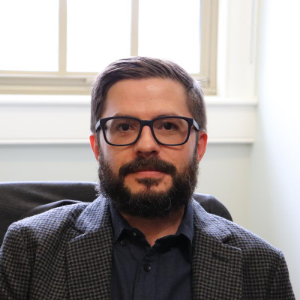

Zinzi Clemmons
We will emerge, and the path forward will be clear.
The only uncertainty will be the strength of our commitment. If we are willing to fight, we will emerge and find a better way.
Zinzi Clemmons is the author of the novel What We Lose and the forthcoming essay collection Freedom.
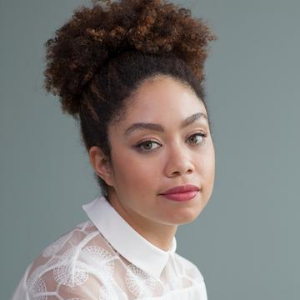
Ann Curry
We will emerge awakened and facing a choice.
A deep well of empathy is breaking open within us after these months of uncertainty, loneliness, and fear. We can feel it when we think about the millions who’ve suffered in this pandemic and about the hero doctors and nurses risking their own lives to save others.
This is an awakening, reminding us of some of the most fundamental questions we can ask of ourselves: “What do I most care about? Who do I want to protect? What is the purpose of my life? What do I wish to be, now?”
New paths appear out of chaos. If we choose to keep this well of empathy open, we can step on the path toward our most courageous, even heroic lives, in which we can rescue and inspire others and are greater forces for good. This is the path toward a life that matters, the one we can’t regret. There, I can see it coming into focus. Do you?
We will emerge and find a better way.
Ann Curry is a journalist, photographer, and humanitarian. @anncurry
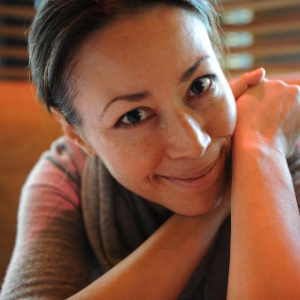
Photo by David Turnley
Kelly Sue DeConnick
We will emerge humbled.
Lives are lost and global economies upended by something so small it cannot be seen. My brain does funny things sometimes. It wanders back to The Sword in the Stone—the Disney one—a lot. Have you ever seen that? Merlin defeats Madame Mim by transforming into a germ and allowing himself to be “caught.” (Spoilers, I guess, but the movie came out in 1963, so really, it’s on you.) We are so proud, we humans, and so frail. My brain thinks a lot about the Whos down in Whoville, too. I’ll tell you a secret: I think we are them. I think we are the Whos just as often as we are the Hortons. My brain, made of invisible cells and containing all that I am or can imagine, whispers to me; it says, “Small things have power.”
When I’m not anthropomorphizing viruses or imposing narratives on chemical reactions, I am aware of the magnitude of the moment in which we are living, and I am awed and humbled by it. Humbled by the fact that I cannot reason with or charm or even choose to ignore a disease and the risk it poses to me and to the ones I love. Awed by the speed at which lives and institutions can be utterly, completely, and permanently changed. One day by the horror of COVID, and then next by the beautiful momentum of the Movement for Black Lives—arguably made possible by the circumstances of the pandemic. Is that irony? Or merely a circuitous path to justice?
There’s another thing my brain keeps wandering back to: a metaphor. It’s not mine; I suspect it’s as old as braids. But I keep thinking about this idea of humanity as a tapestry, woven from the threads of individuals. The threads are all different. Some glitter, some don’t. Some are louder than others. But they are all necessary and desired, and when any one is removed, it leaves a hole. The fibers that remain still cling to one another and the cloth, and compared to the threads from which it is woven, is still strong.
We will emerge humbled by our frailty and empowered by it, for it will bring us together, and when we cleave to one another, we are strong. Stronger than any ego, stronger than any brand.
Kelly Sue DeConnick is best known for comic books like Marvel’s Captain Marvel, Pretty Deadly (co-created with artist Emma Ríos), Bitch Planet (co-created with artist Valentine De Landro), and DC Comics’s Aquaman. DeConnick and her husband Matt Fraction currently develop television for Legendary TV as Milkfed Criminal Masterminds, Inc.


Meena Harris and Mónica Ramírez
We will emerge and be more thankful for workers.
Despite food and agricultural workers being declared “essential,” the federal government hasn’t actually treated farmworkers like the essential workers they are, deserving of the same rights and protections as others. What if it didn’t take a global pandemic to acknowledge that farmworkers are critical to the U.S. economy and that our very existence depends on their labor? What if we celebrated the power and contributions of farmworkers year-round?
We will emerge and find a better way.
Meena Harris is the founder of Phenomenal Woman Action Campaign, a respected entrepreneur, and an influential voice for women’s equality. She is the author of the children’s book, Kamala and Maya’s Big Idea (HarperCollins), which is based on a true story from the childhood of Meena’s mother and aunt. Meena has been featured in The New York Times, AdWeek, Elle, and more. Instagram: @Meena
Mónica Ramírez is founder and president of Justice for Migrant Women. Find her on Instagram @activistmonicaramirez and on Twitter @monicaramirezOH. Learn more about her work at justice4women.org.
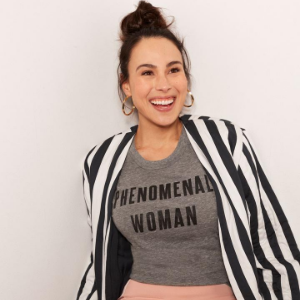
Meena Harris
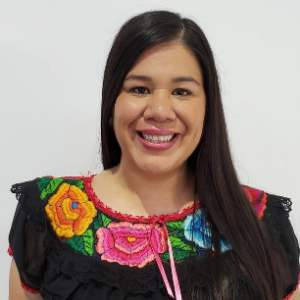
Mónica Ramírez
Molly Jong-Fast
If we don’t die of this thing, which we may, “we will emerge and will be” significantly fatter but extremely grateful for the following things in no particular order: airplanes, Starbucks, haircuts, restaurants, teeth cleanings, Botox, and hugs.
Outside will be something we never take for granted. Travel will be an amazing adventure. Nothing will be the same; we will be filled with gratitude for airports, turbulence, hotel rooms, and rental cars.
We will emerge from this and find a better way to connect with the outside world.
Molly Jong-Fast is an editor at large at The Daily Beast and hosts the “New Abnormal Podcast.”
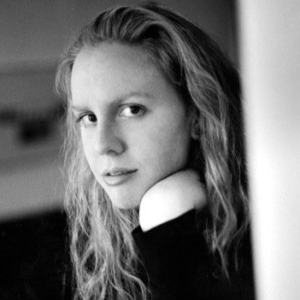
Sarah Lewis
We will emerge with empathy.
I will admit it—the one silver lining of the COVID crisis, I thought, would be a break from the onslaught of images of racial terror and violence in this Stand Your Ground law era. But the virally spread images of Ahmaud Abrary, hunted and killed as he went for a jog—a jog—in Georgia, took even that away. The racial health disparities of COVID are a stark reminder of the very clear reality of the cost of overt and implicit bias and institutional racism.
May the empathy inspired from the quarantine inspire our will and moral clarity to take action and call out what is unjust. May we directly support those who have been doing this work for years and decades. May we do this with at least as much passion as those protesting the injustice of not being able to get a haircut during the pandemic.
We will emerge and find a better way.
Sarah Lewis is associate professor of History of Art and Architecture and African and African American Studies at Harvard University. The guest editor of the award-winning “Vision & Justice” issue of Aperture, her forthcoming publications include an October File on Carrie Mae Weems (2021) and a book on race, whiteness, and photography (Harvard University Press, 2021).
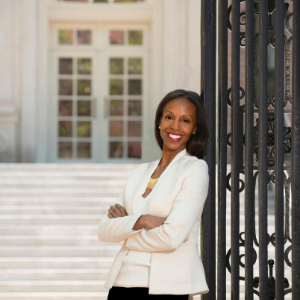

Hasan Minhaj
We will emerge grateful. Grateful to be around each other, grateful for community, even grateful for less than pleasant social interactions that humiliate us.
I miss being onstage and performing. Hell, I even miss bombing onstage. Because it was in front of actual, breathing human beings, that were oftentimes less than six feet away from me. And I remember whenever I’d bomb, I’d be so mad at myself and the audience on the cab ride home.
When this is all over, I can’t wait to get back onstage and bomb again. It’ll be so much fun, and I promise I’ll be grateful for that painful silence from the audience.
We will emerge better and find a better way. I’ll also learn to write better jokes.
Hasan Minhaj, a comedian and writer, is the cocreator and host of the Netflix show Patriot Act with Hasan Minhaj. His first standup special, Homecoming King, premiered on Netflix in 2017 and received a Peabody Award the following year. He previously served as a senior correspondent on The Daily Show and hosted the 2017 White House Correspondents’ Dinner. In 2019, he was named to the TIME 100 list of the world’s most influential people.
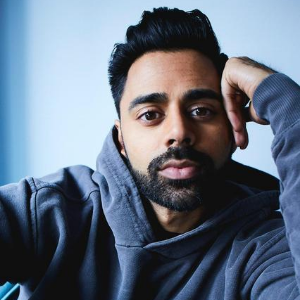
Elie Mystal
We will emerge and be more nurturing.
While many parents, myself included, look forward to the day when schools or babysitters or the freaking circus at this point return and give us a moment’s peace from our children, most of us still cherish this extended period with our kids. Hours usually spent on commutes are now devoted to our kids; lunches, previously eaten at desks, are being shared with our families; and everybody is home in time for bathtime and stories. I will miss it when it’s gone. I think, for a lot of people, “casual” Fridays will turn into “work from home” Fridays, as we try to recapture some “quality time” hours, once the grind resumes.
We will emerge and find a better way.
Elie Mystal is the justice correspondent at The Nation. Prior to that, he was the executive editor of Above the Law. Prior to that, he went to Harvard Law School and had a real job and a financial plan.
Peter Sagal
We will emerge. . .
. . . newly appreciative of the connections in our lives, after having been deprived of them for so long. No more arch complaining about “Uh, having to go out and talk to people.” No more offering to “get together someday” and not mean it. Oh, we will mean it when we emerge.
We will emerge understanding the true value of things, having been locked inside for so long with nothing but our possessions, and we will not be impressed. We will emerge in this country, finally—perhaps for the first time ever—with something in common with every single one of our fellow citizens: not just those in our city or state or class or cohort or race. Having been locked in our cabins for so long, we now recognize that we are all in the same boat. When we emerge, we will finally understand the importance of our common vessel, its strength and seaworthiness, and that each of us must care for our fellow passengers—because we now know, at long last, that we will sink or swim together.
We will emerge and find a better way.
Peter Sagal is the host of the Peabody Award-winning NPR news quiz Wait Wait. . . Don’t Tell Me! and the author of The Book of Vice: Very Naughty Things (and How to Do Them) and The Incomplete Book of Running. He is a playwright, screenwriter, an amateur athlete, and host of several podcasts and documentaries, including The Chernobyl Podcast from HBO and Constitution USA with Peter Sagal on PBS. Sagal lives in the Chicago area with his wife Mara and two dogs, DeeDee and Dutchie, who like to see their names in print.
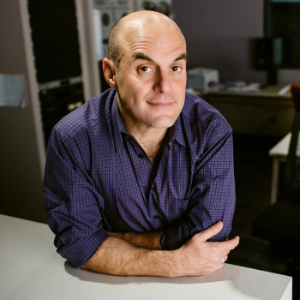

Walter Shaub
We will emerge and be grateful for one another.
Viruses change things. They kill, scar, and impoverish. They are also part of us, embedded in our very blueprint. Our DNA contains stuff they left behind in our ancestors. We are each a life formed not only despite viruses, but also by them. That’s no comfort for the destruction the new coronavirus is inflicting, but it’s a reminder that change will follow this tragedy.
I can’t help but think many of us will be changed by the experience of having to avoid other people for so long. The isolation has been hard. I miss people, and not just loved ones. I miss daily encounters with people I only barely know or don’t know at all. I never expected that particular loss to produce a yearning. But here I am, looking forward to the time when this nightmare is over and we can be together again. Those we lose will still be lost, and we will carry those losses with us. Along with that grief, we will carry a new gratitude for the gift of community.
We will emerge and find a better way.
Walter M. Shaub Jr. was formerly the director of the U.S. Office of Government Ethics. He now works for a nonprofit that advocates for government integrity and accountability. Twitter: @waltshaub
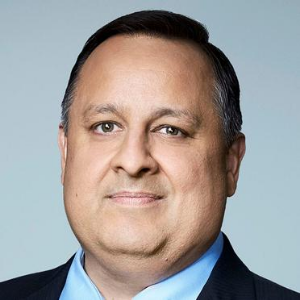
Gary Shteyngart
We will emerge. . . and be yummier.
Our hunger for food that comes out of kitchens different than our own will reach critical mass. We will rush to reopened restaurants and bars and tip as much as our wallets contain. We will support new neighborhood restaurants and food trucks with outrageous orders and allow them to cater every event possible, even events we’ve made up on the spot (National Rabbit Day, here we come!). And we will sample cuisines from countries and regions we’ve never heard of, so get that mamaliga ready, Moldovan chefs!
We will emerge and find a better (and tastier) way.
Gary Shteyngart is the New York Times bestselling author of the memoir Little Failure (a National Book Critics Circle Award finalist) and the novels Super Sad True Love Story (winner of the Bollinger Everyman Wodehouse Prize), Absurdistan, and The Russian Debutante’s Handbook (winner of the Stephen Crane Award for First Fiction and the National Jewish Book Award for Fiction). His most recent novel, Lake Success, was named a best book of 2018 by over 30 publications in the U.S., including The New York Times, NPR’s Fresh Air, Financial Times, and The Washington Post. His books regularly appear on best-of lists around the world and have been published in 30 countries.
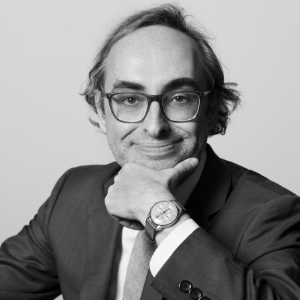
Photo by Brigitte Lacombe
Scott Simon
We will emerge with more gratitude.
We have learned how much our daily lives are nourished, protected, and enlivened by people whose names we don’t know, and in ways we didn’t appreciate. Agricultural workers in the fields; people making masks in factories; doctors, nurses, and techs in hospitals; people on alert in our neighborhoods; public employees working in our interests; and citizens speaking out for equality. All of them and many more help protect, heal, care for, and sustain us. We must not overlook, dismiss, underpay, or take them for granted. We must care for them as they have cared so undauntingly for us.
If we do, we will emerge and find a better way.
Scott Simon is a journalist and broadcaster with NPR and the author of Sunnyside Plaza and other books. Twitter: @nprscottsimon


Connie Sun
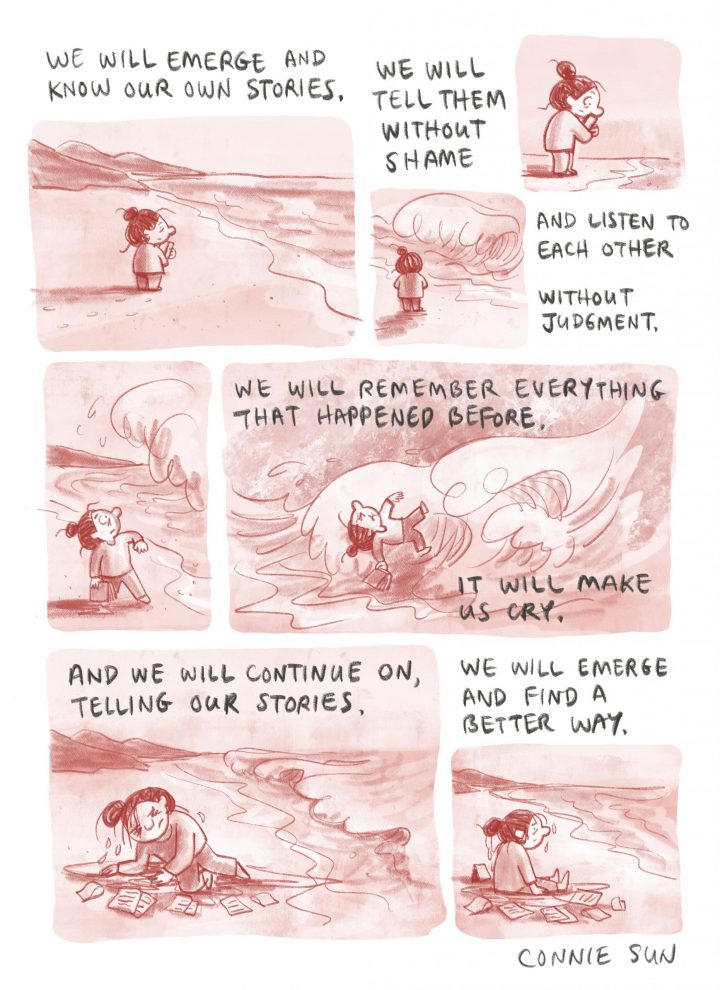
Connie Sun is a cartoonist and writer based in New York City. She draws a comic strip about being a single, odd, and introspective human with a wise elephant companion. Her cartoons have been featured in The New Yorker, The Lily News, NPR, Buzzfeed, Upworthy, GoComics, and McSweeney’s. Instagram: @cartoonconnie
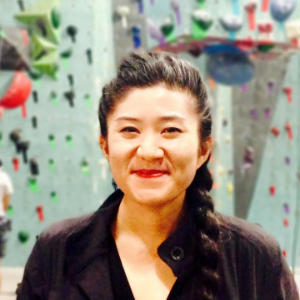
Sabaa Tahir
We will emerge with greater appreciation for our public school educators.
The past few weeks of homeschooling have taught me that I am a rubbish teacher. While I have always been thankful to the teachers and librarians who educate my children, I have recently been in awe of them.
However, many educators in the United States are criminally underpaid. They are underappreciated, overworked and, with minimal resources, asked to satisfy impossible demands from higher-ups, as well as parents.
What if we appreciated our teachers and librarians by backing measures that supported them, and giving our votes to lawmakers who appreciated them? Could we together create classroom environments that were as wonderful as possible for educators and students—while paying our teachers respectable wages?
We will emerge and find a better way.
Sabaa Tahir is the No. 1 New York Times bestselling author of the An Ember in the Ashes series, which has been translated into more than 35 languages. She grew up in California’s Mojave Desert at her family’s 18-room motel, where she spent her time devouring fantasy novels, raiding her brother’s comic book stash, and playing guitar badly. Twitter, Instagram, and Facebook: @sabaatahir
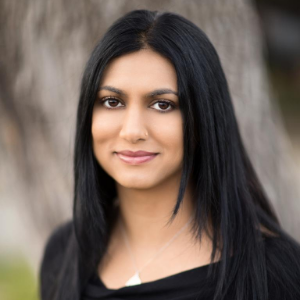
Colm Tóibín
We will emerge. . .
We will emerge and be able to dream of Venice in the morning, a morning in late spring, early summer, the hour when shutters are opening and tables are already outside, the hour before the museums open when there is a soft warm wind, when the light still has an edge of haze. We will emerge and find a better, slower way to get from Piazza San Marco to San Rocco, with no sign of pollution in the canals and no cruise ship towering over the city.
We will emerge and find a better way.
Colm Tóibín is the author of nine novels, including The Master and Brooklyn, and two collections of stories. He is a contributing editor at the London Review of Books and Mellon Professor of the Humanities at Columbia University.
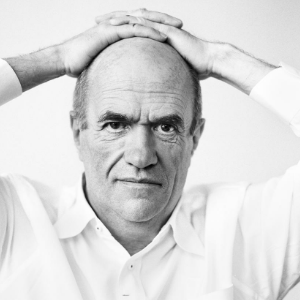
Photo by Brigitte Lacombe

